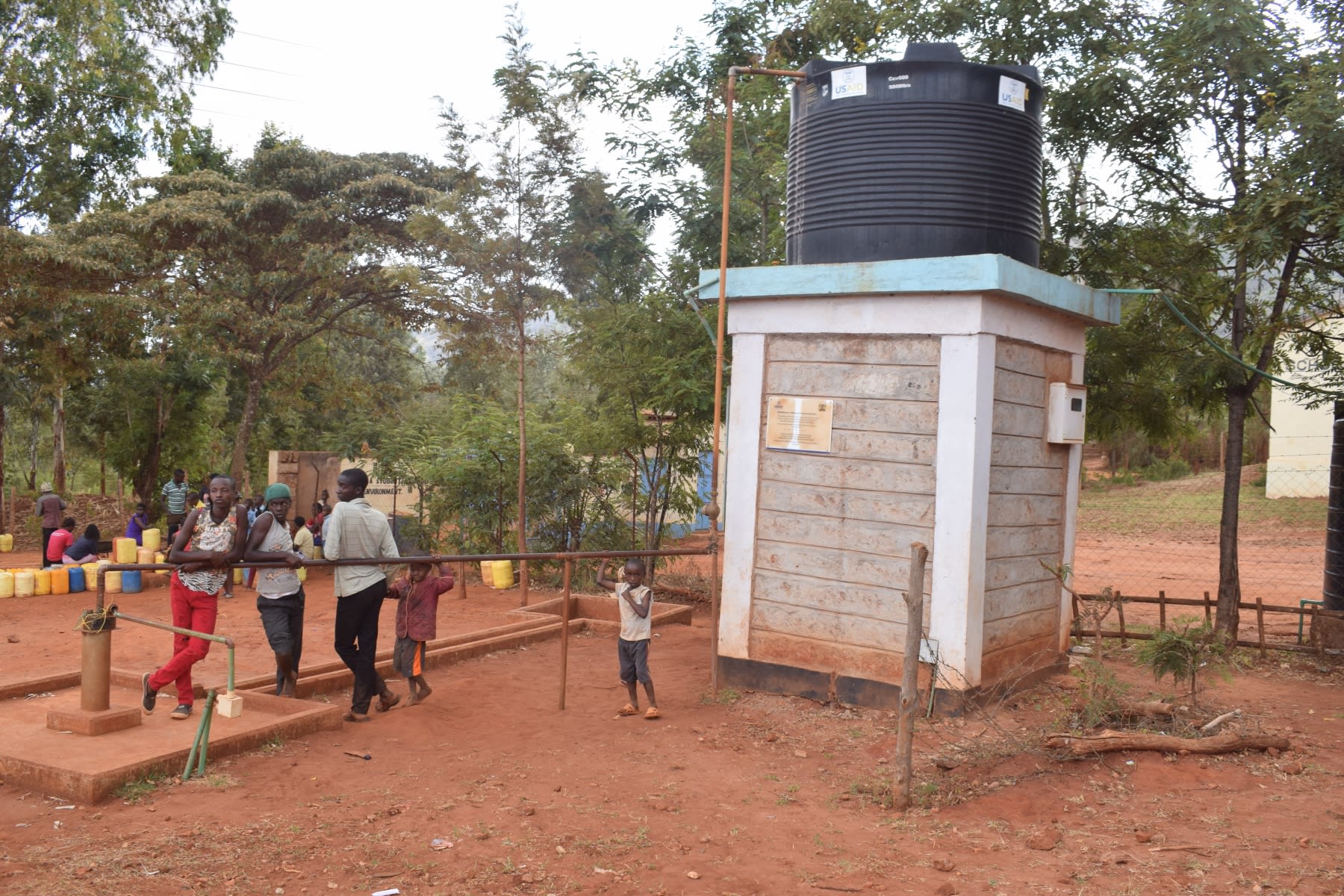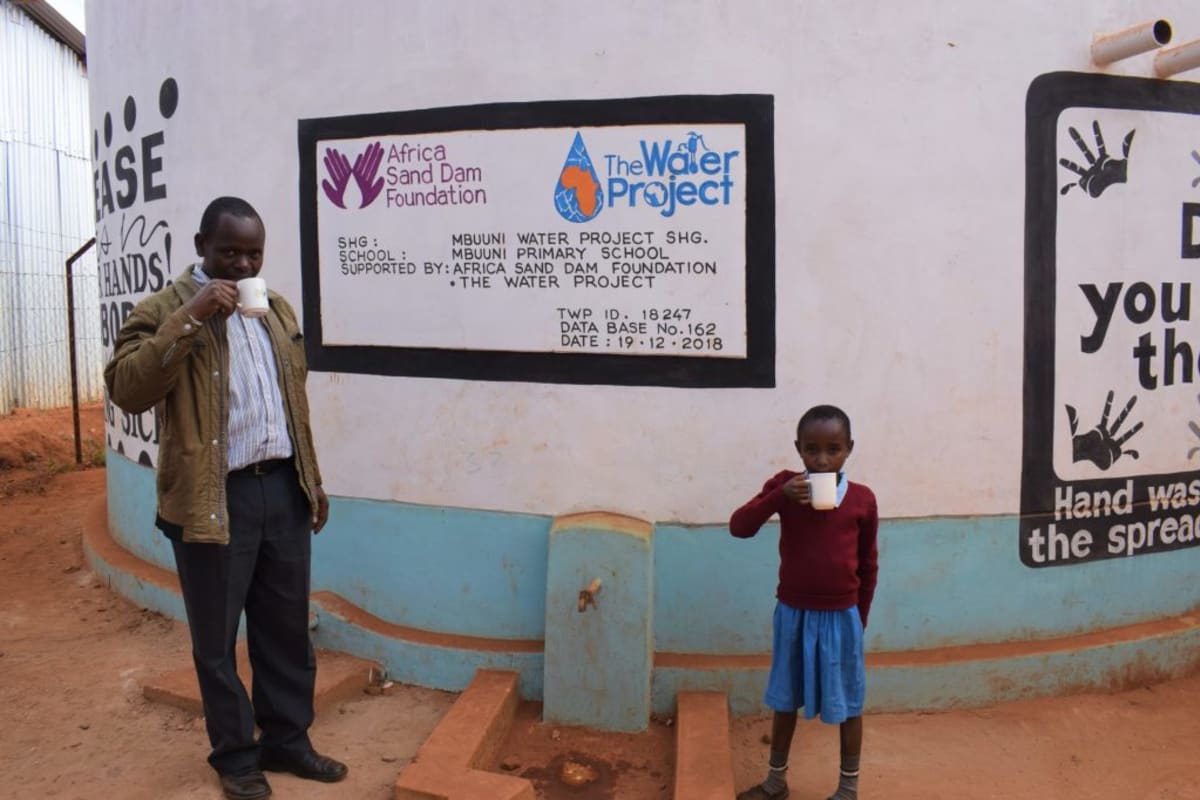The parents of students attending Mbuuni Primary School have supported the school since its founding in 1963. The school was fortunate enough to benefit from a latrine and well renovation in 2015.
However, the well produces only 800 liters a day and is shared with the community, too. That is not nearly enough water for the 470 students at the school who require a minimum of five liters of water per day.

The nearest river is 4km away, but it would normally be sandy and dry. It is now filling with water thanks to the sand dam that we installed last year, and the adjacent hand-dug well is providing drinking water for members of the community. However, the distance is too far from the school to provide them with basic access to safe water. So, they rely on the well and other nearby open sources.
The school latrines are rarely washed and there are some students are barefoot, therefore, the risk of contracting diseases are very high. Due to lack of water, the children rarely wash their hand after visiting the latrines.
Building a new rain tank and providing training on sanitation on hygiene will boost the school's access to water and help resolve some of these issues.
Here’s what we’re going to do:
Training
Students and staff will be trained for one day. Those in attendance will form a school health club that will promote good hygiene and sanitation practices both at school and at home. They will learn all of the steps to proper handwashing, how to treat water, and how to keep their environment clean. The school will also be taught how to best oversee and maintain their new rainwater catchment tank and handwashing stations.
Handwashing Stations
Three handwashing stations will be delivered at the project’s completion. These are 1,000-liter plastic tanks fitted with four taps. The health club and school management will be responsible for making sure tanks are filled with water and that a cleaning agent such as soap or ash is available.
Rainwater Catchment Tank
We will build a 104,000-liter rainwater catchment tank for this school. This water will benefit the students, teachers, and supplementary staff. Parents will mobilize the materials needed for construction, such as sand and stone. They will also lend some strong arms to help with the actual construction.
The huge capacity of this tank makes the others look tiny in comparison; 104,000 liters should be enough water to carry students and staff through the entire dry season. As soon as the tank has time to cure, it can begin to collect rainwater for drinking, cooking, and cleaning!

 Rainwater Catchment
Rainwater Catchment
 Rehabilitation Project
Rehabilitation Project






























